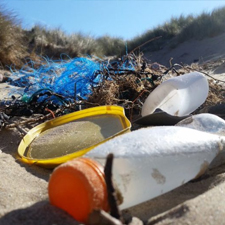
After some testing, custom officials were forced to backtrack
What started out as a hoax in China in 2010, quickly spread around the world through social media. Read more on how social media was used to create a public health scare. There were videos being made with the claim that plastic rice was being sold to consumers and to prove their point, they showed how a ball of rice bounced. Although these rumors were never proven true, complaints about plastic rice came from all over and even caused some problems in Africa recently, according to a BBC report.
In 2016, Nigerian customs authorities seized over 2,000 kilograms of what they claimed was plastic rice. The news quickly spread until the country’s health minister stepped in. After some testing, custom officials were forced to backtrack and admit that the rice was not plastic but did, however, test positive for high levels of bacteria.

As videos continued to fuel rumors of plastic rice being made in factories
As videos continued to fuel rumors of plastic rice being made in factories, Alexander Waugh, director of UK-based Rice Association, offered a different explanation. “The natural characteristics of rice are carbohydrates and proteins and you can do something like that with rice,” Waugh says.
Another reason why the plastic rice myth has become so popular in areas like Africa is that people are purposely sharing the fake videos in an effort to dissuade consumers from buying imported rice.
“The rumor is more popular in countries, which are dependent on imported rice like Ivory Coast or Senegal,” journalist Alexandre Capron of France 24’s, The Observers reports. “The rumor is so huge that governments are compelled to make statements as to why there is no plastic rice in reality.”

Plastic containers and bottles contain a cancer-causing chemical known as phthalates
So, how can you tell if your rice is organic or not? According to Osman Mohiuddin, who works for India’s state department says, “Just put it in some water. If it sinks, then it’s organic rice. If it doesn’t, it could be mixed with some other material.” (This does not include the several grains of rice floating because they didn’t penetrate the water’s surface.)
What happens if we do eat plastic? Well, since plastic is not biodegradable, it will eventually leave your body, but there are several negative side effects as well. Some plastic containers and bottles contain a cancer-causing chemical known as phthalates, which can easily get transferred into your food and water. So, although there may be no plastic in the rice, it would be a smart idea if you reduce the use of plastics for food and water containment as well.

